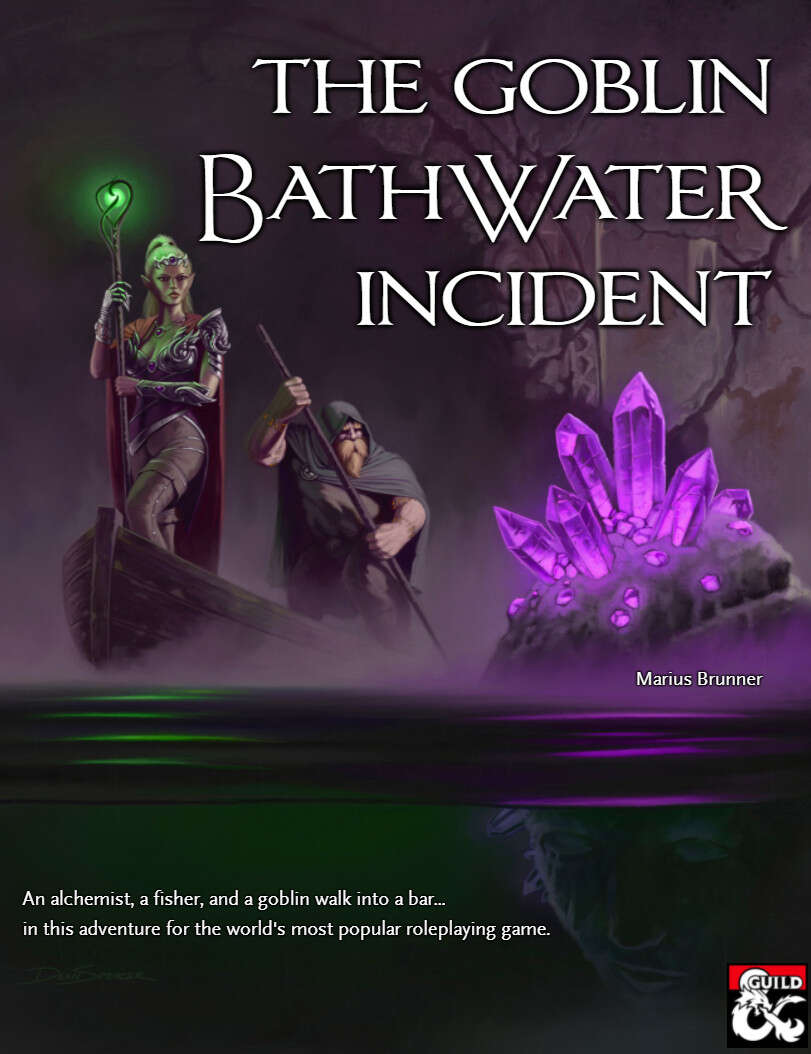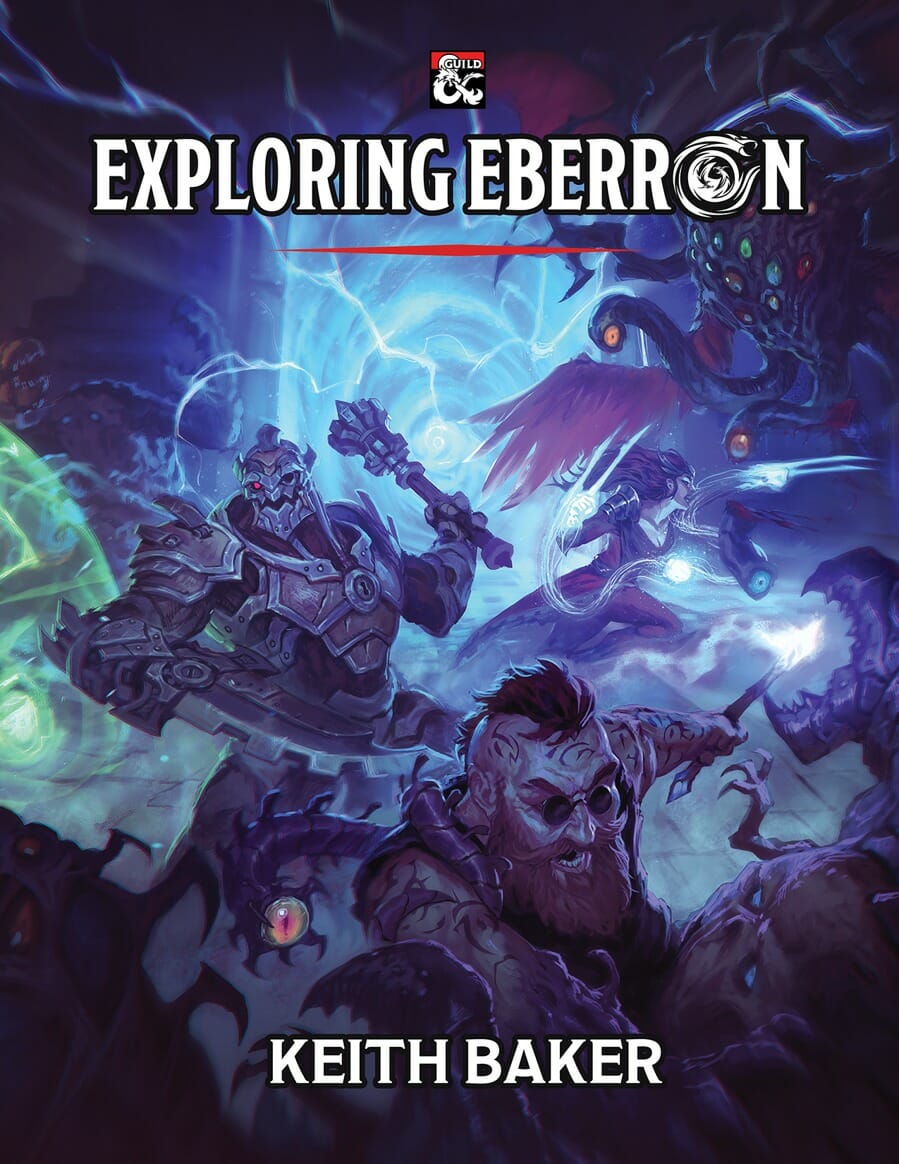Geek Native invited Marius Brunner, the author of the D&D adventure The Goblin Bathwater Incident, to write about Tier 1 adventures.
The premise is that many Tier 1 adventures can be basic, not just in challenge level but in tone and scope.
Marius argues that they do not need to be. The Gobin Bathwater Incident itself is a Tier 1 adventure, 30 hours long, about small-town politics and the ethics of immigration.
What do you think? Do you agree with the premise? Do many adventures for the lower character levels in D&D lean too heavily into “an introduction to fantasy worlds” at the expense of nuance, mystique and emotional challenge?
If so, why do you think that might be?
Of course, “Tier 1” is D&D terminology but the observation might also apply to many other RPGs. Let’s see what Marius has to say on the topic.
An argument for more sophisticated Tier 1 adventures
By Marius Brunner
Earlier this year, I wanted to show Dungeons and Dragons to my wife. It would be her first tabletop roleplaying adventure. It should be something simple, definitely not longer than a few evenings, definitely starting at level one. But my wife is by no means a fantasy genre novice. She likes Game of Thrones and The Name of the Wind, so I wanted to find a morally ambiguous story, include some difficult choices and maybe some grey characters.
I am sure many dungeon masters have been in a similar situation, so I assumed I could just find an adventure that suited my needs. It should be a short, morally challenging beginner-friendly adventure. To my dismay, it was quite hard to find an adventure that is suited for beginner D&D players but offering a story that goes at least one or two steps above: Find evil monster, slay them, save the day. So, I simply created my own adventure to suit my needs. But should you have to do the same?
Below, I will go over some reasons for why many of the Tier 1 adventures are designed as simple fetch or kill missions and over some exceptional books you can use to fuel your need for more sophisticated Tier 1 Dungeons & Dragons adventures.
What is a Beginner?
My frustration seems to stem from a conflation of two kinds of beginner players.
On the one hand, there are those players that are not yet familiar with the rules and intricacies of Dungeons & Dragons. On the other hand, there are those that are new to the concepts of fantasy and RPGs. It seems many adventures designed for Tier 1 players simply address every player as if they were a beginner in all senses of the word.
Arguably, this might have been the case back in the 70s and 80s, when D&D first became popular. But today? With Harry Potter and Game of Thrones topping sales charts for movies and books and popular Hollywood shows like Community and Stranger Things explicitly talking about D&D, the audience is simply much more sophisticated. They know more about fantasy tropes, they have more developed tastes, and they can be expected to follow a less basic plot, even while learning the rules to a complicated new game.
Phandelver and the Forgotten Realms
The Forgotten Realms is the default setting for the 5th edition of Dungeons & Dragons. Most of the published adventures play in this world. It contains such well-known locations as the Sword Coast, the jungles of Chult, and Icewind Dale. Right on the first page of the Forgotten Realms Style Guide published by Wizards of the Coast it says:

The Forgotten Realms is a hopeful setting. The good guys will eventually win.
Rooted in this statement is much of what makes the Forgotten Realms into such a simplistic setting, so let’s unpack it a bit. Firstly, the term ‘good guys’ implies moral absolutes. There are villains and heroes, and monsters born just to be evil.
Even if one is to overlook the rather problematic imperialist idea of a hero civilizing savage beasts, this still leaves us with a world wherein there are no subjective viewpoints on morality. There is a little alignment tag, right at the top of the character sheet or the monster’s stat block that tells us from the first second if someone is a friend or a foe. Clerics and Paladins even get a spell called Detect Evil and Good, which allows them to scan their surroundings for evil monsters.
The other part of the statement is honestly even more jarring to me. There is an expectation for the monsters to be inferior to the heroes. They are supposed to be overcome and conquered.
This is most notably true for the classic beginner adventure of 5th edition: The Lost Mines of Phandelver. In this adventure, the characters are looking for the eponymous lost mine and some kidnapped friends of theirs. The antagonists are dumb, evil goblins; a spooky, evil banshee; dangerous, militaristic orcs; and finally, a gang of good-for-nothing bandits that want to steal a treasure that rightfully belongs to the township. At no point is there a pause where the players ask themselves what they should be doing, only ever where they can find the next evil monster to put down.
Breaking the Mold
If you are, like me, looking to break the mold and play something more nuanced, here are my suggestions:
- Find a new setting. Keith Baker, the creator of the Eberron setting, has recently published an updated take on his world. In Eberron, objective alignment does not exist. It is darker than the Forgotten Realms in tone and technologically more advanced. Think D&D meets steampunk and film noir. Exploring Eberron gives an overview of the campaign world and many plot hooks.
- Find an adventure that offers a twist. M.T. Black is a proficient D&D adventure writer. In his adventure The Lich-Queen’s Begotten, he manages to keep with the traditional ‘kill monster’ storyline of the Forgotten Realms, but towards the end, he offers an interesting variant on the question of whether to kill an innocent destined for evil.
- Find an adventure that was designed specifically to fix this issue. My adventure, The Goblin Bathwater Incident offers morally grey antagonists, small-town politics, and ethical questions around the topic of immigration. All enwrapped in a compelling plot and still offering plenty of interesting combat encounters.
About the Author
Marius Brunner is a long-time D&D player and dungeon master just getting started as a freelance writer on the DMs Guild. His motto: Play your TTRPG characters like you would drive a stolen car. Revel in their agony, bask in their drama, and certainly jump them off a cliff if you have to.



